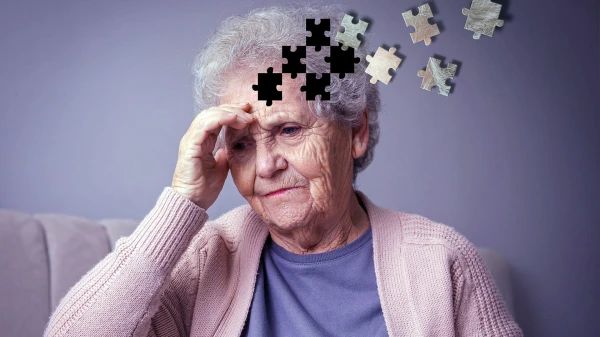
Of course, diagnosing yourself based on an internet test is a bad idea. However, this list of questions can help you understand whether you should seek help.
Many symptoms of Alzheimer’s can easily be attributed to aging or personality traits. But what should you do if you suspect that it might actually be a diagnosis?
Peter Rabins, a professor at Johns Hopkins University and an Alzheimer’s disease expert, listed questions that can help you determine whether you should be concerned. Of course, the final verdict should be made by a doctor; however, this self-diagnostic test can help you understand whether you should schedule an appointment as soon as possible.
Do You Remember Your Friends’ Names?
If you struggle to remember the names of new colleagues and have always been a forgetful person — that’s one thing. If at 30 you sometimes forget why you walked into a room — it’s unlikely that this means you are showing symptoms of the disease.
It’s another matter if you are capable of forgetting the names of close ones, relatives, and important dates. Another alarming sign is when you cannot remember information even for a relatively short period of time.
"Let’s say you have a doctor’s appointment scheduled for the next day, and you’ve been told this twice, or you are going to a wedding this weekend that was mentioned, but you don’t remember it. That is concerning," notes Rabins.
Do You Have Problems with Everyday Tasks?
A warning sign is if ordinary, routine tasks have become a real challenge for you.
For example, if you find it difficult to cook from recipes or manage your budget — even though you had been doing these things without problems for years. This symptom may indicate a sharp decline in cognitive functions, writes the Daily Mail.
Is It Hard for You to Organize Anything?
There is a popular belief that memory is the first thing to suffer in Alzheimer’s disease. In fact, even earlier, patients experience problems with what neurologists call "executive function" — that is, the brain’s ability to manage tasks.
Of course, disorganized people in life need not worry — it’s just a personality trait. However, if this shortcoming appeared suddenly and only recently — it’s worth considering.
What Medications Are You Taking?
There are medications that provoke side effects very similar to the symptoms of Alzheimer’s. For example, this can happen after medications for treating lung diseases, heart conditions, anxiety disorders, and urinary incontinence.
Therefore, before drawing conclusions about a possible diagnosis, recall what pills you have taken recently.
How Are You with Multitasking?
Often in hospitals where people are tested for Alzheimer’s disease, patients are asked to answer mathematical questions. Doctors do this not to check their arithmetic skills. Such tests are necessary to assess the ability to hold multiple tasks in mind simultaneously.
Even if you think you are a humanities person, believe me: mathematical tasks may be a bit more challenging for you, but it’s nothing compared to the difficulties faced by people with Alzheimer’s disease.
How Much Do You Drink?
In older age, the metabolism of alcohol is worse than in youth. That’s why the older a person gets, the faster they become intoxicated. This can provoke clouded consciousness, which can easily be mistaken for signs of Alzheimer’s.
Has Your Character Changed?
A person’s personality changes over the years — and to some extent, this is normal. Retirement can be an event that significantly affects your behavior.
However, in some cases, sharp changes in a person can be a symptom of Alzheimer’s. Moreover, these changes are not always negative. Rabins gives the example of a patient with a complex character who became more loving and caring due to the disease.
Have You Become a More Anxious Person?
Paradoxically, if you are very anxious about your cognitive skills, the very fact of your worries is already a possible sign of the illness.
Rabins notes that some people with such a diagnosis experience anxiety about their mental abilities, leading to a desire to withdraw from the world. They will not go on vacation and will start skipping meetings with friends — just so no one notices their problems.
Has Your Sleep Pattern Changed?
Previous studies have shown that the relationship between sleep and Alzheimer’s disease is complex.
According to scientists, sleep disturbances over several years can be an early sign of the disease.
This may manifest as waking up too early or too late or a desire to nap during the day.
Additionally, if you sleep soundly but still wake up tired — that can also be a warning sign.
Have You Lost Interest in Your Favorite Hobbies?
When your favorite activities no longer bring you joy — this is a common sign of depression. However, sometimes a sudden loss of interest in things that used to bring a lot of pleasure can be a symptom of Alzheimer’s.
"I had an elderly patient who always regularly played cards with friends, and he started saying, ‘Well, I don’t enjoy this anymore.’ At first, the family thought he was just aging, and his friends were dying, but it was a sign of Alzheimer’s disease," Rabins said.












